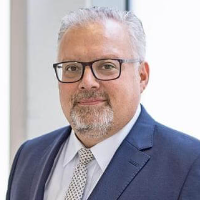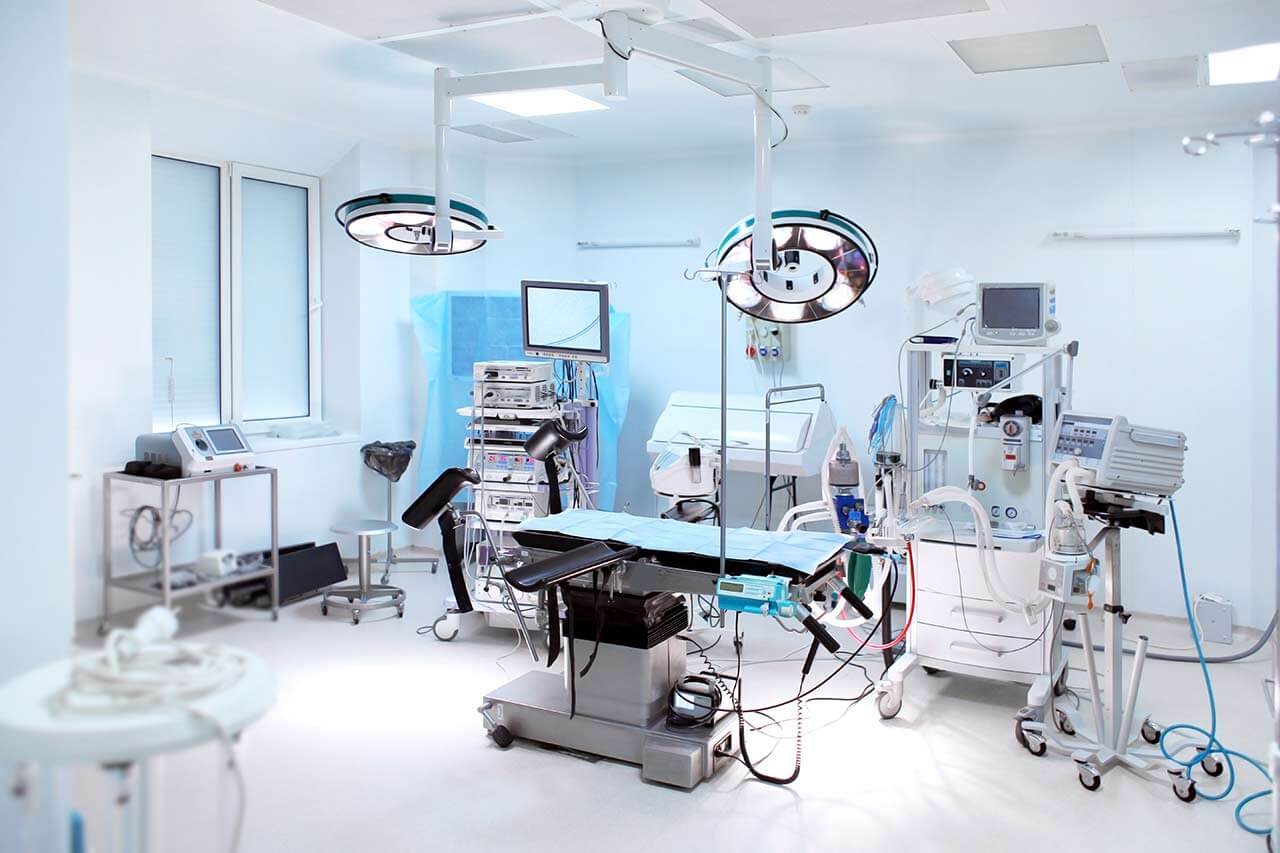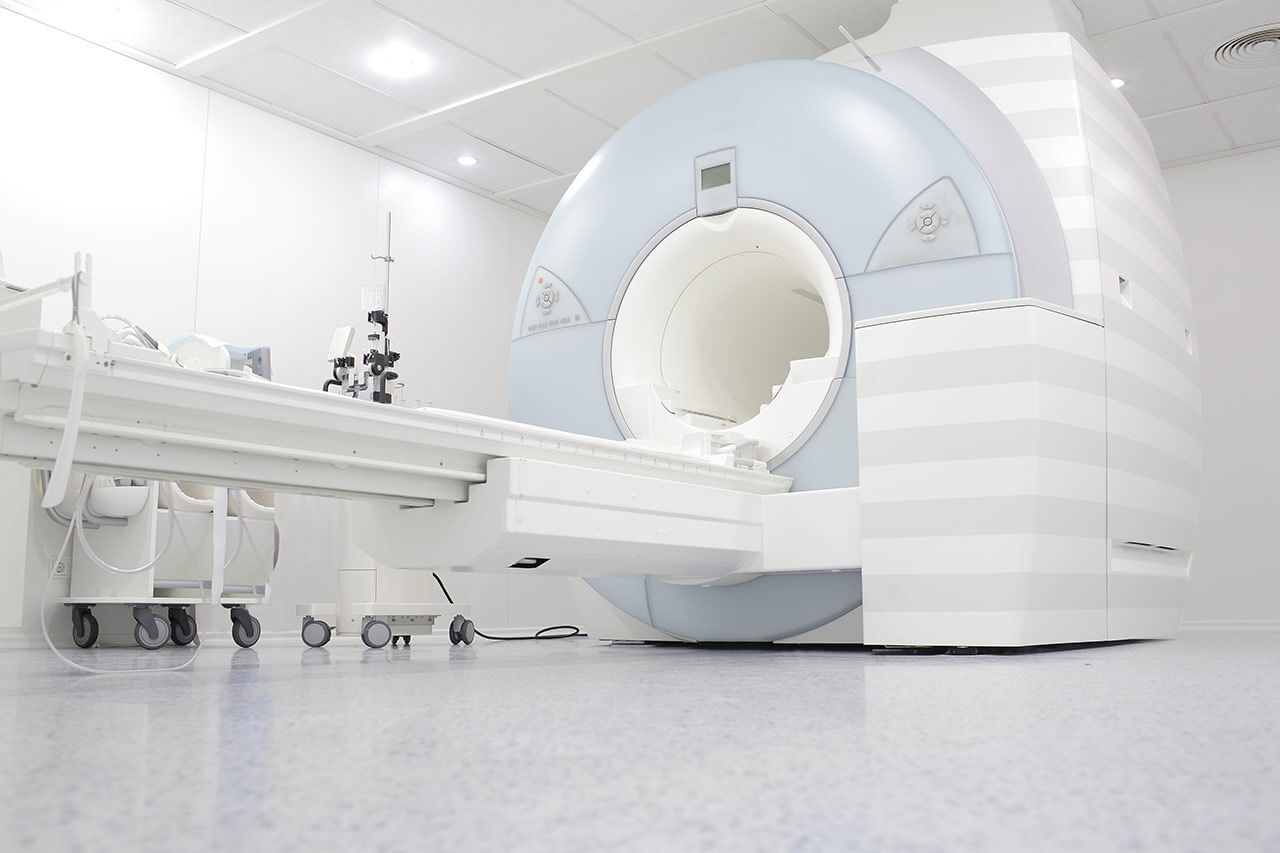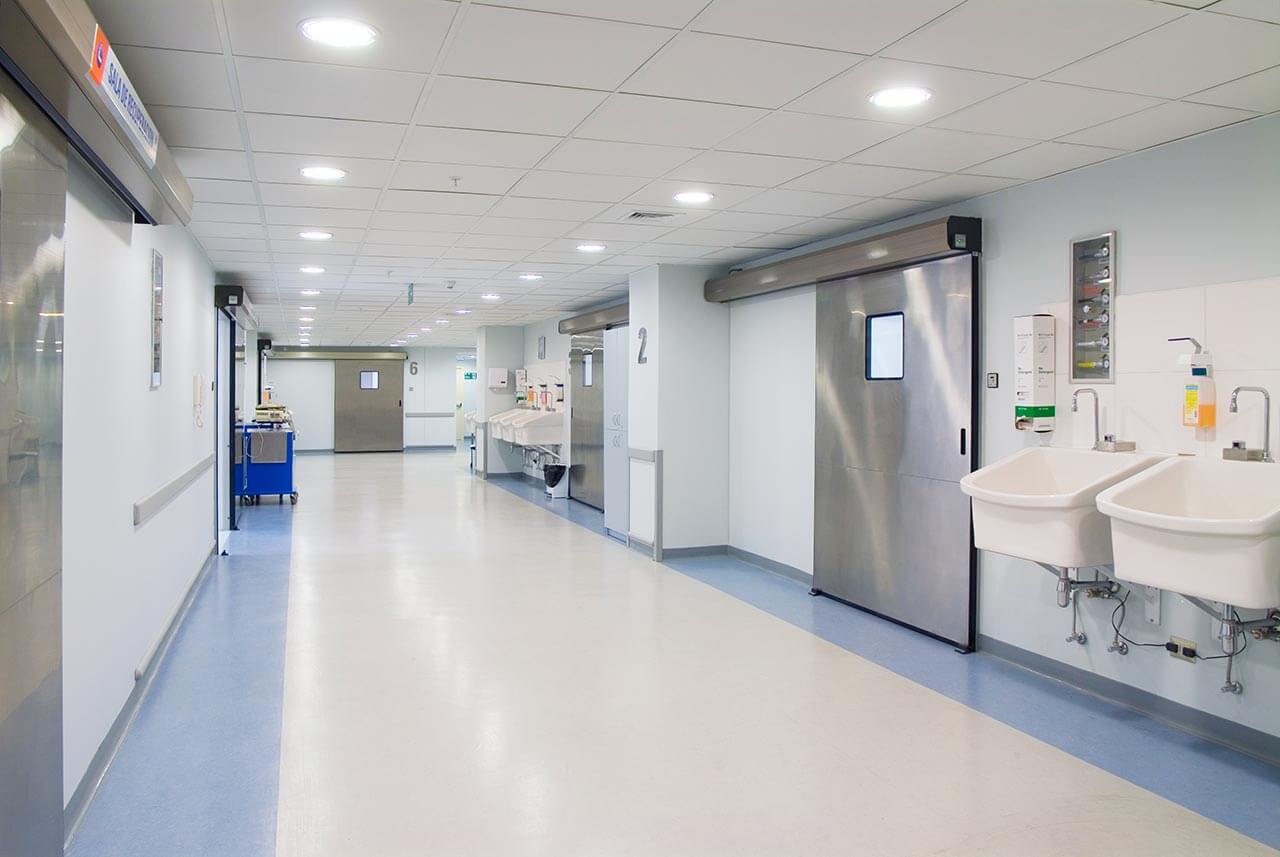
The program includes:
- Initial presentation in the clinic
- clinical history taking
- physical examination
- review of medical records
- laboratory tests:
- complete blood count
- general urine analysis
- biochemical analysis of blood
- TSH-basal, fT3, fT4
- tumor markers
- indicators of inflammation
- indicators blood coagulation
- CT/MRI/x-ray scan
- computer 3d reconstruction
- preoperative care
- corrective jaw surgery
- symptomatic treatment
- control examinations
- the cost of essential medicines and materials
- nursing services
- full hospital accommodation in 2 bedded room
- explanation of future recommendations
Service
You may also book:
 BookingHealth Price from:
BookingHealth Price from:
About the department
The Department of Oral and Maxillofacial Surgery, Facial Plastic Surgery at the University Hospital Halle (Saale) offers a full range of medical services in its areas of specialization. The healthcare facility successfully treats diseases and injuries of the jaw, face, and hard and soft tissues in the maxillofacial region. The department also provides a wide range of services in surgical dentistry and dental implantology. The most important focus for the department's oral and maxillofacial surgeons is performing operations to treat malignant diseases of the oral cavity, tongue, palate, pharynx, and face. The department is part of the Head and Neck Tumor Center certified by the German Cancer Society (DKG). Aesthetic dentistry and facial plastic reconstructive surgery complete the surgical possibilities of the medical facility. Functional and aesthetic results are taken into account in the planning of the operation. The department's team of physicians follows the recommendations of the German Society of Oral and Maxillofacial Surgery (DGMKG) in their daily clinical practice, which helps to achieve the best treatment results. The Head Physician of the department is Prof. Dr. med. Frank Tavassol.
One of the primary clinical interests of the medical team of the department is the surgical resection of tumors of the facial skull, head and neck soft tissues, oral cavity, tongue, and pharynx. For this purpose, the specialists of the department have at their disposal the most sparing minimally invasive and microsurgical techniques, the use of which ensures excellent therapeutic results with minimal restrictions on speech and swallowing after the completion of therapy. Surgical resection of the tumor is an integral part of the therapeutic process, but in most cases surgery alone is not sufficient, so the operation is complemented by chemotherapy, radiotherapy, and other conservative methods. The treatment regimen for each patient is developed by an interdisciplinary tumor board that includes oral and maxillofacial surgeons, otolaryngologists, oncologists, and radiation therapists. The department also has expertise in bone and skin reconstructive plastic surgery to restore the aesthetics of the face and neck after extensive tumor resection.
An important place in the work of oral and maxillofacial surgeons in the department is occupied by the surgical correction of jaw malformations, the most common of which is dysgnathia. This pathology is characterized by the displacement of the jaw and teeth, resulting in the formation of a malocclusion. Many people mistakenly believe that dysgnathia is a purely aesthetic defect, but it also negatively affects the functions of chewing, swallowing, and speech, and causes pain. In many cases, dysgnathia is corrected with conservative methods. However, in complex clinical cases, the only effective method to eliminate the malocclusion is surgery, jaw osteotomy.
In the field of facial plastic surgery, the department focuses on performing rhinoplasty (nose reshaping surgery), otoplasty (ear reshaping surgery), and face and neck lifts. Plastic surgery is preceded by an individual consultation, during which the surgeon and the patient discuss the patient's wishes for the upcoming surgery. If necessary, computer modeling of the patient's new appearance can be done.
The range of medical services provided by the department includes the following:
- Oral and maxillofacial surgery
- Surgery for tumors of the facial skull, head and neck soft tissues, oral cavity, tongue, pharynx, and facial skin
- Surgery for dysgnathia (malocclusion)
- Surgery for dental, facial skeletal, and jaw injuries
- Surgery for inflammatory diseases of teeth, jaws, facial soft tissues and bones
- Surgery for diseases of oral mucosa and tongue
- Surgery for diseases of salivary glands
- Surgical dentistry
- Tooth extraction
- Root apex resection
- Dental implantation
- Facial plastic surgery
- Rhinoplasty
- Otoplasty
- Face and neck lifts
- Other surgical options
Curriculum vitae
Since 1 October 2023, Prof. Dr. med. Frank Tavassol has been Head Physician of the Department of Oral and Maxillofacial Surgery, Facial Plastic Surgery at the University Hospital Halle (Saale) and is also a professor at the Faculty of Medicine of the Martin Luther University Halle-Wittenberg. Previously, the specialist held the position of Senior Physician and Deputy Head Physician of the Department of Oral and Maxillofacial Surgery at the Hannover Medical School. Prof. Frank Tavassol studied medicine and dentistry at the Hannover Medical School, graduating as a dentist in 1999 and as a doctor of medicine in 2003. The specialist was board certified in oral and maxillofacial surgery in 2007. He completed his habilitation at the Hannover Medical School in 2012. Prof. Frank Tavassol was awarded the Scientific Prize by the German Society of Oral and Maxillofacial Surgery (DGMKG) in 2012.
Photo of the doctor: (c) Universitätsklinikum Halle (Saale)
About hospital
According to the prestigious Focus magazine, the University Hospital Halle (Saale) is one of the best medical institutions in Germany!
The history of the hospital goes back more than 300 years, and during this time it has managed to gain an excellent reputation not only in Germany, but also throughout the world. The hospital positions itself as a specialized healthcare facility for the treatment of severe and rare diseases and injuries. The hospital provides medical care to patients of all ages in compliance with the latest scientific achievements. The hospital is distinguished by successful research activities, especially in the field of cardiovascular diseases and oncopathologies – the specialists in these areas have made significant contributions to the development of the very latest diagnostic methods and therapeutic approaches.
The University Hospital Halle (Saale) has 30 specialized departments representing almost all areas of modern medicine, as well as 17 narrowly focused institutes. About 35,000 patients receive qualified medical care of European standards in the hospital every year, and more than 212,000 patients are served on an outpatient basis. This number of patients is evidence of the high efficiency of medical services and the excellent image of the hospital in the international medical arena; patients from all over the world regularly seek medical attention here.
Some of the hospital's structural units deserve special attention. For example, the Central Emergency Department (the largest in Saxony-Anhalt), modern dental clinics, the Perinatal Center, and the Transplant Center, which has a history of more than 40 years. The Transplant Center performs more than 40 kidney transplants annually, most of them from living donors.
Thanks to the use of the latest medical technologies and the availability of state-of-the-art equipment, many previously high-risk surgeries and procedures can now be performed in the hospital using sparing techniques. In this context, hybrid cardiac surgery and robotic surgery using the innovative da Vinci Si® system in urology are worthy of mention.
An integral part of the successful clinical practice of the University Hospital Halle (Saale) is the availability of experienced and competent medical staff. The total number of employees at the hospital is more than 4,450. Many physicians are known far beyond the borders of Germany: they regularly conduct important research that enables the development of modern medicine. In addition, the hospital specializes in training medical students, so qualified doctors and professors are willing to pass on their experience to the younger generation.
The hospital has many quality certificates such as DIN EN ISO 9001:2015 certificate, German Cancer Society (DKG) certificate, JACIE certificate, EndoCert certificate, ClarCert certificate, German Spine Society (DWG) certificate, German Trauma Society (DGU) certificate, CERT iQ certificate, LGA InterCetert certificate, and others.
Photo: (с) depositphotos
Accommodation in hospital
Patients rooms
The patients of the University Hospital Halle (Saale) stay in comfortable single, double, and triple rooms with a modern design. All patient rooms have an ensuite bathroom with a toilet and a shower. The standard patient room includes a comfortable automatically adjustable bed, a bedside table, a wardrobe, a table and chairs for receiving visitors, a TV, a radio, and a telephone. The patient rooms have access to Wi-Fi. For safety reasons, the use of laptops and cell phones is prohibited in some areas, including the intensive care units. The hospital also offers enhanced-comfort patient rooms.
Meals and Menus
The hospital offers delicious and well-balanced meals three times a day: breakfast, lunch, and dinner. Patients and their companions can choose from three daily menus, which always include dietary dishes. If necessary, an individual menu can be prepared for the patient. Children are offered a special menu with healthy and tasty dishes, rich in nutrients necessary for a growing body.
Further details
Standard rooms include:
![]() Toilet
Toilet
![]() Shower
Shower
![]() Wi-Fi
Wi-Fi
![]() TV
TV
Religion
Religious services are available upon request.
Accompanying person
Your accompanying person may stay with you in your patient room or at the hotel of your choice during the inpatient program.
Hotel
Your accompanying person may stay with you in your patient room or at the hotel of your choice during the inpatient program.




